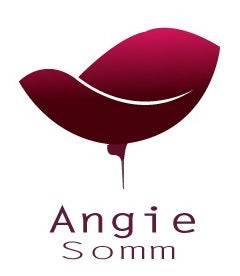Do you find drinking wine enjoyable, but the process of learning more about wine – especially if you’re a beginner – daunting and complicated? If so, you’re definitely not alone. “How do I start learning more about wine?” is a question I get asked a lot. The good news is, it’s not difficult to get started, especially when you have the right mindset. Here are four tips to help you learn more about wine no matter what your current experience level.
Tip #1: Realize it’s a journey, not a destination
Learning about wine doesn’t have a specific starting or ending point. It’s not like solving an equation where you figure out the answer and then move on to another problem. Wine education is subjective and constantly changing. Every year, there are more wines being produces and your palate and preferences will change over time as well. Your main goal in learning about wine should be to maximize your enjoyment along the way, so having the right mindset is key.
Tip #2: Find out what interests you the most and focus on that
There’s a massive amount of information out there about winemaking techniques, history, varietals, serving, buying, storing…whew! I’m exhausted just listing the topics! Obviously, it’s easy to get overwhelmed and just shut down. However, if you focus on just one topic, it will trigger your curiosity and help you start learning. Are you intrigued by a certain region? A specific varietal? How food and wine pair together? Want to be a better wine-taster? No matter which area you focus on, you’re starting in the right place because it’s what interests you.
Tip #3: Take action on this topic NOW
Once you’ve chosen a topic, it’s easy to go down the Google rabbit hole or get caught up in books. However, stuffing your brain with information doesn’t have the same effect as actually having an experience and can actually make your brain short circuit due to information overload! Instead, think about your favorite dish (say a honey-glazed pork chop) and then look up some wines that would pair well with it. Then serve it for dinner! This type of experience will last in your memory and be more meaningful. Take it from someone who has spent a lot of time studying books on wine: a sip of a good wine is worth more than reading a thousand words!
Tip #4: Expand from there
Once you get comfortable and have a few good experiences under your belt on your favorite topic, feel free to expand. Again, there are no rules, schedule, or timeline you need to follow. You can even switch up topics if you like! Just be confident in the knowledge that you are having an enjoyable journey. Learning about wine is meant to enhance your pleasure and doesn’t need to be anything more than that.
Now, I know some of you have type A personalities and just going on an enjoyable journey is not enough for you. In fact, it might make you want to pull your hair out! For those who want a systematic, organized, step-by-step solution, I’ve got you covered. When I was studying for my sommelier exam, I created a syllabus to cover everything I needed to know about wine and more! I’ve included a link below for you to download the syllabus. Just keep in mind that it can look a little overwhelming at first because it’s meant for those in the wine profession or those who want to seriously pursue the hobby of wine appreciation.
And there you have it! Four tips on how to start learning more about wine no matter what level you’re currently at or how deeply you want to go into the subject.
--------------------------------------------------------------------------------------
Alright you deeply passionate wine lovers, this is the syllabus I used when I was studying for my Advanced Sommelier Exam. I allocated different lengths of time for each country/region depending on my knowledge at the time and the complexity of the region. I also answered 16 questions for each region to ensure I completely understood them. Good luck!
FRANCE
Burgundy
Rhone
Southern France
Bordeaux
Alsace
Jura Savoie, ETC
Loire
Champagne
ITALY
Northern Italy
Central Italy
Southern Italy
Other Countries
South Africa
Spain
Portugal
Greece
Hungary
Germany
Austria
Switzerland
Eastern Europe
USA
South America (Argentina, Chile, etc.)
Canada
Australia
New Zealand
Misc
Fortified Wine
Spirits & Cocktails
Sparkling wines around the world
Beer/Sake
Viticulture
Vinification
16 Questions for Each Region
- Geography (country, area of country, major natural features such as mountains, lakes, rivers, forests, where it is in relation to other regions, etc.)
- Laws (wine laws of the area they pertain to)
- Grapes allowed (all of them, not just the obvious ones). Native names? Clones?
- Viticultural techniques (minimum/maximum planting density, allowable yield, ripeness levels at harvest, vine training, harvest dates, irrigation allowances, etc.)
- Vinification techniques (fermentation, percentages of blends, acidification/must enrichment, min alcohol/sugar etc. Chaptalization)
- Aging laws (oak/no oak, length of time in wood and bottle, release dates)
- Soils of the area and climate
- Official regional classifications (Vin de Table vs. AOC, state vs. region in Australia, etc.)
- Sub-Regional classifications (Grand Cru vineyards, villages, etc.)/or other classifications (1855 of Haut-Medoc, Graves): knowledge of the most important (Grand Crus of Champagne and Burgundy, the 61 Growths of 1855 classification)
- Major producers (at least 5 for each region and what makes them unique) and some historical lore (the big stories, the romance)
- Vintage knowledge (poor/fair/good/excellent and why)
- Proper terminology for laws (Gran Reserva vs. Vino Joven in Rioja)
- Specific terminology related to that region (Sforzato, Aszu Essencia vs. Essencia, Hanepoot)
- All other unique vocab from the region
- Size of region, size of acres/ha under vine, volume of wine production, etc.
- History and timeline

